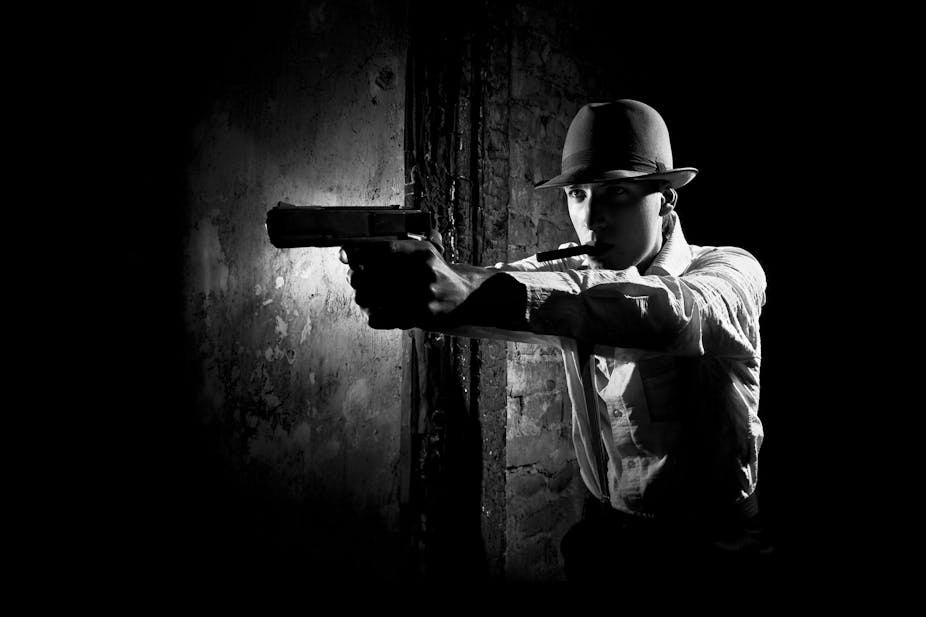As the West struggles to contain and destroy the threat of Islamic State (IS), there are excited rumours that an old, almost forgotten enemy is resurfacing to protect us: the Mafia.
International news agencies and media channels have been dizzily reporting that John “Junior” Gotti, the son of an infamous New York City crime boss of yore, has warned that IS should fear La Cosa Nostra, a traditional criminal syndicate of Sicilian origin based in the New York City area, and that therefore NYC is under Mafia protection.
Curiously enough, similarly “comforting” news comes from Italian sources; it seems that IS should not only fear the mob in New York, but also the deadly and powerful mafia groups of southern Italy.
But before we all pack up our things and move to Calabria, Sicily or Manhattan to shelter under these groups’ dark wings, let’s take a reality check. Gotti’s claim that the Mafia is protecting the US from terrorism actually dates back to an interview he gave in 2012. The news related to Sicilian mafia boss Toto “Shorty” Riina, who asked to be freed from prison to fight IS, was fake, too. Too bad.
So why has the myth of benign mafia protection resurfaced now – and why in relation to IS? There are various reasons, and all of them are myths that need to be shattered.
My enemy’s enemy
This is a story as old as the hills: after something as horrible as the Paris attacks of November 13 2015, the world (and primarily the West) snaps into what European thinker Jürgen Habermas called the “reflex of turning back on ourselves in face of the incomprehensible alien”. That manifests in the pursuit of an impossible standard of absolute security and safety, and therefore the need for protection – from however unlikely a protector.
Then there’s the muddled thinking that puts IS and the Mafia in the same category in the first place, even though they do share some common practices.
One of the characteristics of organised crime groups in general is their ability to control territory – that is, the ability to exercise power, affect the economy, and/or influence the social life of a community. This they do either through criminal enterprises (anything from extortion and drug trafficking to the infiltration of legitimate businesses) or via political proximity (simple bribery, exchanging votes for favours, or the outright rigging of elections). And much like a mafia group, the argument goes, IS has used remarkably deft methods to hold and control its territory.
But think about it for a moment, it’s obvious that “control of territory” doesn’t actually imply control of everything and everyone in it – or that IS and the Mafia rely on the same methods to control it.

Take the idea that organised crime and mafia groups operate a monopoly on violence in their territory, or at least some good degree of control over it, together with unrestricted access to and disposal of weapons. This masks a big distinction.
Both mafias and terror groups draw on the illicit arms trade, one of the most profitable criminal markets for organised crime groups and mafias. But amassing an arsenal is not the same as arms trafficking for profit, which is a trade, not an acquisition of weapons for the sake of exerting violent power.
Mafias are simply not paramilitary forces, with disciplined and trained troops using weapons as their primary means of control. And if they’re not, how would they be able to face a military attack?
Power and control
We seem all too keen to believe that mafia groups and terrorists could, might or should work together or directly clash simply because they are all “organised criminals” and therefore supposedly birds of a feather. And yes, in most Western countries, organised crime poses a threat to public safety and national security just as terrorism does.
But even though there are clear distinctions between the methods and motivations of organised crime and mafias (profit and power acquisition) and terrorist groups (religious and/or political ideology), governments, security services and the media often fail to make that distinction.
And never mind their ability (or inability) to fight each other; they don’t necessarily spend any time working together either.
Yes, organised crime syndicates and terrorist groups are both frequently transnational, and both are serious violent threats. But from what we know about the Paris attacks, for instance, they are an example of how the illicit support terrorist groups draw on often comes not from organised mafia-type groups, but from relatively petty criminals.
Fundamentally, while mafia crime and terrorism might converge on some points, the former is primarily a capitalistic model aimed at illegal acquisition of money and exploitative power, while the latter is a form of political violence whose criminal actions serve motives beyond the financial.
This distinction goes against the premise that organised crime and mafia groups “know” terrorists well enough to fight them better than states can. The idea has understandable appeal at such an unsettled moment, but it bears little relation to reality.

